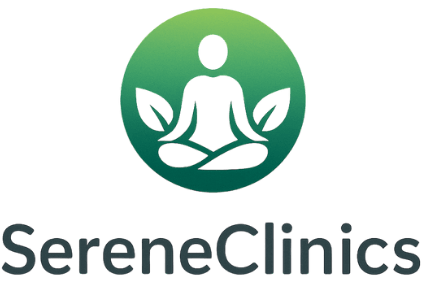Naturopathy: Principles, Methods, and Health Benefits
Find out about naturopathy, which focuses on stopping illness and using natural treatments. Early figures like Benedict Lust and James Sensenig started this important field, and today, leaders like Cathy Rogers still support its benefits. In this article, we’ll look at the main ideas, techniques, and many health benefits of naturopathic medicine, helping you towards a healthier, more balanced life.
Key Takeaways:
Contents
Definition of Naturopathy

Naturopathy is defined as a system of medicine that focuses on natural healing processes and the body’s capacity to recover from health problems.
This approach uses different methods such as herbal medicine, acupuncture, nutrition, and lifestyle advice.
For example, practitioners often recommend dietary changes to support immune function, with a focus on whole foods and reducing processed ingredients.
Recent statistics show that over 20% of adults in the U.S. have used some type of alternative health methods. This indicates that naturopathy is becoming more accepted in regular healthcare. In fact, a report by the CDC highlights the growing trend of complementary and alternative medicine use among adults.
Tools like the Standardized Naturopathic Patient Satisfaction Questionnaire help measure the effectiveness and patient experiences within this practice.
History and Evolution
Naturopathy, started by people such as Benedict Lust in the early 1900s, has changed a lot over time. It now combines old practices with new scientific knowledge.
Key milestones include the establishment of the American Association of Naturopathic Physicians in 1930, which provided a unified voice for practitioners.
Figures like James Sensenig, a prominent naturopath in the 20th century, emphasized evidence-based practices, bridging the gap between science and tradition.
In recent years, using naturopathic ideas in overall health care has become more popular, showing their importance today. For those interested in a comprehensive overview of this evolution, Nature’s Path: A History of Naturopathic Healing in America is recommended reading and provides further insights into the development of naturopathic practices.
Methods like herbal medicine, nutrition, and therapies that involve both mind and body still play a key role in today’s wellness practices, showing that the basic ideas of naturopathy are still important in current healthcare.
Core Principles of Naturopathy
Naturopathy centers on principles that prioritize a person’s health by addressing all aspects and stopping sickness before it starts. For an extensive analysis of holistic approaches, our deep dive into Homeopathy: Principles, Practices, and Evidence-Based Integration offers valuable insights.
Holistic Approach
Naturopathy looks at the entire person-mind, body, and spirit-not just the disease symptoms.
This broad view helps educate patients by focusing on lifestyle changes along with treatment.
For instance, a naturopath may recommend a combination of dietary adjustments, such as incorporating more whole foods and reducing processed sugars, with mindfulness practices like meditation or yoga. These practices are part of a larger framework of holistic health strategies that emphasize balance and wellness.
Successful treatment plans often include:
- Weekly nutritional counseling
- Regular assessments of mental wellness
- Personalized exercise regimens
By focusing on related health factors, patients can achieve better results and gain more knowledge about their health path.
Healing Power of Nature
Naturopathy relies on the benefits of nature, using natural treatments to support healing without using dangerous methods.
Common natural remedies include herbal medicines, such as echinacea for immune support and ginger for digestive issues.
Scientific studies have shown echinacea can reduce the duration of colds by 1-2 days, while ginger is recognized for its anti-inflammatory properties. Healthline, for instance, discusses the benefits and uses of popular herbal medicines.
A notable case study involved patients with chronic digestive complaints who reported significant relief after a regimen of ginger tea and dietary changes.
Emphasizing evidence-based approaches, practitioners often combine these remedies with lifestyle adjustments, enhancing overall wellness naturally.
First Do No Harm
The principle of ‘First, Do No Harm’ emphasizes the importance of using harmless treatments that support the body’s natural healing processes.
Naturopathic physicians often choose therapies such as homeopathy, herbal medicine, and nutritional counseling that align with this principle. Herbal treatments such as echinacea can help strengthen the immune system without severe side effects, making them different from potent drugs.
Nutritional counseling focuses on whole foods to meet personal needs, promoting healing through diet. Techniques like acupuncture are employed to stimulate the body’s self-healing capacities, ensuring patient safety while promoting recovery.
By prioritizing gentle methods, practitioners honor the commitment to minimize harm and support overall wellness.
Identify and Treat the Cause
In naturopathy, identifying and treating the root cause of health problems, rather than just alleviating symptoms, is paramount.
This process often starts with detailed patient forms that include questions about medical history, lifestyle, and emotional health.
For instance, a practitioner may use tools like the Naturopathic Health Assessment to identify underlying stressors related to conditions such as chronic fatigue or digestive issues.
Diagnostic tools, including iridology or live blood analysis, can complement these assessments.
A useful example is solving digestive problems by identifying food sensitivities with a detailed intake form. This leads to personalized diet suggestions and better results.
Doctor as Teacher
Naturopathic doctors see themselves as teachers, providing patients with information and tools to help them change their lifestyle effectively.
To integrate patient education into consultations, naturopathic doctors often use a variety of materials.
For instance, informative brochures can outline dietary recommendations while engaging workshops might focus on stress management techniques.
Interactive tools, like meal planning apps or exercise trackers, encourage patients to monitor their progress.
Custom learning sessions concentrate on personal health problems, helping people learn more about their condition.
By using these methods together, practitioners increase patient involvement and also improve overall health progress, showing how learned ideas can be used in daily life.
Prevention is the Best Cure

The belief that prevention is the best cure is a cornerstone of naturopathy, advocating for proactive health measures to avoid chronic conditions.
Naturopathy focuses on different ways to prevent health problems.
Eating lots of fruits, vegetables, and whole grains can reduce the risk of heart disease. Studies show that people who eat this way have around a 30% lower risk.
Regular physical activity, combined with stress management techniques like yoga and meditation, can also lower cortisol levels, benefitting overall mental health.
Using herbal supplements, such as turmeric to reduce inflammation or echinacea to support the immune system, can improve health. These overall methods focus on a balanced way of living, supporting a long and healthy life.
Methods Used in Naturopathy
Naturopathy uses different techniques designed for each person’s needs, focusing on natural treatments that support recovery and health. Worth exploring: Principles of homeopathy and how they integrate with naturopathic practices.
Herbal Medicine
Herbal medicine, a key practice in natural healing, uses plant-based treatments to manage long-term health issues and improve general wellness.
Common herbs like turmeric, ginger, and echinacea offer various health benefits supported by research.
Turmeric, with its active compound curcumin, can reduce inflammation; a study in the Journal of Medicinal Food suggests a dosage of 1,000 mg daily for optimal results.
Ginger is renowned for digestive support, with 1,500 mg taken in divided doses shown effective in alleviating nausea.
Echinacea, often used to prevent colds, can be taken as a supplement in 300 mg doses, three times a day.
Always talk to a healthcare professional before using any herbal treatments to make sure they are safe and effective.
Nutritional Counseling
Nutritional counseling in naturopathy involves making diet plans suited to each individual’s health objectives and specific health problems.
This approach begins with a thorough nutritional assessment, often utilizing tools like food diaries or online trackers such as MyFitnessPal.
A recent case involved a client managing diabetes who benefited from a low-glycemic meal plan, leading to a 20% reduction in blood sugar levels in three months.
Meal planning can include using apps like Mealime to create balanced dishes.
These specific plans help clients improve their health by focusing on certain conditions.
Homeopathy
Homeopathy is a unique method within naturopathy, using highly diluted substances to stimulate the body’s healing response without causing harm.
Homeopathy operates on the principle of “like cures like,” meaning a substance that causes symptoms in a healthy person can be used to treat similar symptoms in a sick person. For example, belladonna might be used to lower fever and reduce swelling.
Regulatory status varies by region; in the U.S., the FDA oversees homeopathic remedies, but their efficacy is often debated.
Case studies demonstrate applications in managing chronic conditions like asthma, where patients report fewer attacks. People who doubt point out that there isn’t strong scientific proof for these case studies, leading to ongoing debates.
Physical Medicine
Physical treatments in naturopathy, like massage and chiropractic adjustments, improve health by supporting body functions.
These techniques can be combined with other natural treatments to improve patient results.
For instance, combining chiropractic adjustments with acupuncture can alleviate back pain while promoting overall energy flow.
Similarly, massage therapy can be used alongside herbal remedies to relieve muscle tension and support healing.
To implement these combinations, practitioners often use tools like the McKenzie Method for assessing spinal conditions and Mindbody apps for scheduling and patient management.
Customizing treatments based on personal evaluations provides a well-rounded approach to health and wellness.
Mind-Body Medicine
Mind-body medicine focuses on how mental and physical health are linked, using methods like meditation and yoga to improve well-being.
Among these techniques, guided imagery has shown measurable improvements in stress reduction and pain management. For instance, studies indicate that individuals practicing guided imagery experience up to a 40% decrease in pain perception.
Similarly, mindfulness practices, such as mindful breathing, can lower cortisol levels significantly. To try these techniques at home, you can use apps like Headspace for organized meditation or Insight Timer for free guided sessions.
Practicing regularly, even for just 10 minutes a day, can help you feel better and become more resistant to stress.
Hydrotherapy
Hydrotherapy uses water in different ways-like baths, compresses, and saunas-to help with recovery and ease long-term health issues.
Hydrotherapy techniques can effectively address conditions like arthritis, muscle pain, and stress. Warm water baths improve blood flow, which helps reduce pain and stiffness.
A study published in the Journal of Physical Therapy demonstrated that hydrotherapy improved joint function in arthritis patients by 30% after six weeks.
Contrast baths-alternating hot and cold water-can reduce swelling and inflammation. Clinical evidence supports using saunas for relaxation, as regular sessions can lower cortisol levels, promoting better stress management and mental health.
Integrating these methods into patient care plans can yield significant benefits.
Aromatherapy

Aromatherapy uses essential oils to help improve physical and emotional well-being through smell.
Essential oils like lavender and eucalyptus can be used in various methods.
For relaxation, diffusing lavender oil in your living space can promote a calming atmosphere. To alleviate respiratory issues, inhaling eucalyptus can help clear sinuses.
To keep safe, mix oils with a carrier oil before putting them on your skin and do a patch test to avoid allergies.
Applying essential oils during massage therapy enhances the session, making them useful in natural medicine for reducing stress and promoting recovery.
Health Benefits of Naturopathy
Naturopathy provides many health benefits, especially in handling long-term illnesses and improving general health using natural techniques.
Naturopathy Health Impact Statistics
Naturopathy Health Impact Statistics
Global Naturopathy Practice: Practitioners and Coverage
Global Naturopathy Practice: Common Health Conditions
Global Naturopathy Practice: Treatment Methods
The Naturopathy Health Impact Statistics Give information about how common naturopathy practices are worldwide, emphasizing the health issues they often treat and the methods used. This data shows the importance of naturopathy in overall health care and its increasing popularity in different areas.
Global Naturopathy Practice indicates that 36% of countries have practicing naturopaths, reflecting a moderate global presence. In North America, 67% of countries feature naturopathic practitioners, demonstrating a particularly strong foothold in this region. This indicates a cultural trend in North America that favors using different methods of medicine, possibly influenced by a broader view of health and overall well-being.
- Chronic Conditions: A notable 75% of patients looking for naturopathic treatment have long-term illnesses. This highlights naturopathy’s role in managing long-term health issues, offering complementary approaches alongside conventional medicine to improve quality of life.
The Common Health Conditions addressed by naturopathy are diverse, with 18.5% of cases involving musculoskeletal conditions, such as back pain and arthritis. Gastrointestinal conditions account for 12.2%, and mental illness conditions, including anxiety and depression, make up 11%. These conditions often benefit from naturopathic treatments that emphasize lifestyle, dietary interventions, and stress management.
- Treatment Methods: The preference for dietary changes by 60.5% of practitioners highlights the importance of nutrition in naturopathy. Lifestyle and behavioral changes are recommended by 56.9% Highlighting the importance of lifestyle changes in improving health. Herbal medicines and nutritional supplements, used by 54.2% and 52.1% respectively, illustrate a focus on natural and nutraceutical approaches to support health and treat ailments.
Overall, the statistics show that naturopathy plays an important role in healthcare for managing long-term illnesses and changing lifestyles. Its focus on natural treatments and prevention fits well with modern health trends, supporting its growth and acceptance in regular healthcare practices worldwide.
Chronic Disease Management
Naturopathy provides effective management strategies for chronic diseases, reducing reliance on pharmaceuticals and focusing on natural healing.
For conditions like diabetes, a naturopath may recommend dietary adjustments, such as incorporating more whole foods like quinoa and legumes, along with regular exercise. Patients often report improved blood sugar levels after implementing a balanced meal plan focused on low glycemic index foods.
Regarding hypertension, techniques such as stress management through yoga and herbal supplements like hibiscus tea can be beneficial. One patient shared how blending these strategies led to a 10-point reduction in blood pressure in just a few weeks, showcasing naturopathy’s potential in chronic disease management (learn more about the education and training of licensed naturopathic doctors).
Stress Reduction
By focusing on both mental and physical health, naturopathy provides strong methods for reducing stress and improving overall health.
Common techniques include mindfulness meditation, which research shows can lower cortisol levels by up to 30%. Practicing yoga regularly improves flexibility and helps lower anxiety. Studies show a 40% reduction in stress symptoms for those who practice yoga.
Dietary changes such as increasing omega-3 fatty acids found in fish and flaxseed can improve mood and cognitive function. Including these habits in your daily routine-like spending 10 minutes on mindfulness or yoga and choosing your meals carefully-can greatly help in handling stress.
Improved Digestion

Naturopathy significantly improves digestive health through targeted nutritional counseling and the use of natural supplements.
To improve digestive health, experts often suggest changing your diet by eating more fiber from foods like whole grains and vegetables, and cutting back on processed foods.
Probiotics like lactobacillus or bifidobacterium can also be added to promote gut flora balance, available in supplements or foods like yogurt.
Herbal remedies such as peppermint or ginger have shown effectiveness in alleviating symptoms like bloating and nausea.
In clinical cases, patients have reported a 40% improvement in digestive symptoms within six weeks using a combination of these strategies.
Enhanced Immune Function
Naturopathic methods are focused on enhancing immune function, equipping patients to better combat infections and chronic health issues.
To strengthen your immune system, think about using certain nutritional supplements and altering your daily routines.
For example, vitamin C (500 mg daily) has been shown to reduce the duration of colds, while zinc (25-50 mg daily) is effective in preventing respiratory infections.
Incorporating a diet rich in antioxidants, such as berries and leafy greens, supports cellular health. Doing moderate exercise regularly, like walking fast for 30 minutes on most days, is important for keeping a strong immune system.
Each of these recommendations is supported by clinical studies emphasizing their effectiveness in enhancing immunity.
Overall Wellness and Vitality
The main aim of naturopathy is to improve general health and energy through teaching, lifestyle changes, and natural therapies.
To achieve this, people can focus on regular exercise, eating a diet full of whole foods, and using stress management methods like mindfulness or yoga.
For instance, incorporating at least 30 minutes of moderate exercise five times a week can significantly improve mood and energy levels. Swapping processed foods for more organic fruits and vegetables can lead to noticeable improvements in digestion and overall health.
Patients who adopt these lifestyle habits often report feeling improved overall, experiencing reduced anxiety, and having a stronger immune system.
Frequently Asked Questions
What is Naturopathy and its principles?
Naturopathy is a form of alternative medicine that focuses on the body’s ability to heal itself through natural methods. Its principles include treating the whole person, identifying the root cause of illness, and the use of non-invasive treatments.
What are the methods commonly used in Naturopathy?
The methods used in Naturopathy include herbal medicine, acupuncture, hydrotherapy, nutrition therapy, and homeopathy. These methods help the body heal itself and improve general health and well-being.
What are the main health benefits of Naturopathy?
Naturopathy can provide a wide range of health benefits, including improved digestion, increased energy levels, reduced stress and anxiety, stronger immune system, and improved overall health and wellness. It can also help control ongoing illnesses and avoid later health problems.
Is Naturopathy safe for everyone?
Naturopathy is generally considered safe for most people. However, always talk to a qualified naturopathic doctor before beginning any treatment, particularly if you have existing health issues or are on medication.
Can Naturopathy be used alongside conventional medicine?
Yes, Naturopathy can be used alongside conventional medicine. In fact, many people choose to combine natural and conventional treatments to promote overall health and wellness. Make sure to tell your healthcare provider about any Naturopathic treatments you are receiving.
Is Naturopathy a regulated practice?
Yes, Naturopathy is a regulated practice in many countries, including the United States, Canada, and Australia. Naturopathic doctors undergo extensive training and must be licensed in order to practice. You should get treatment from a certified and licensed Naturopathic doctor for the best results.

Sheetal Sharda has a background in CS. She got an interest in Holistic living back in 2018, and has since started exploring more into Naturapathy, Holistic Living, Yoga, and more. She got inspired to start SereneClinics to help people find reliable centers across the world.






